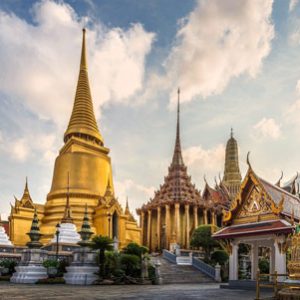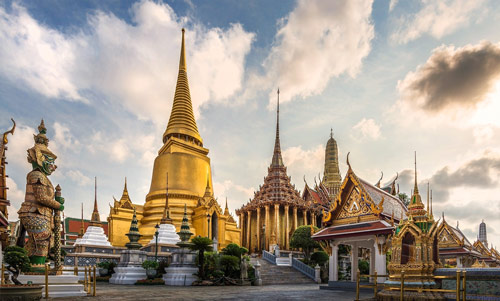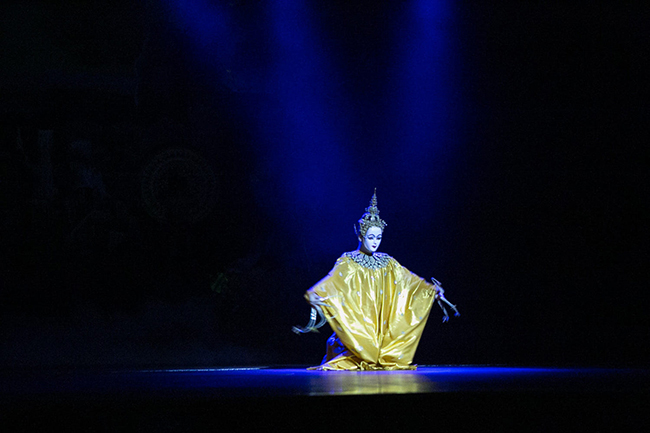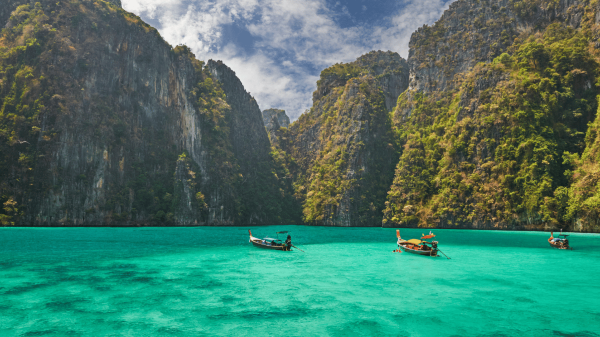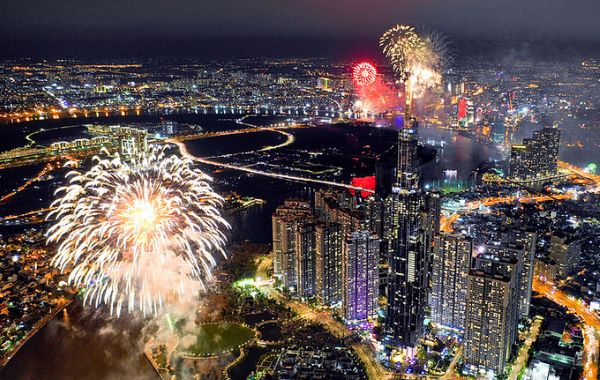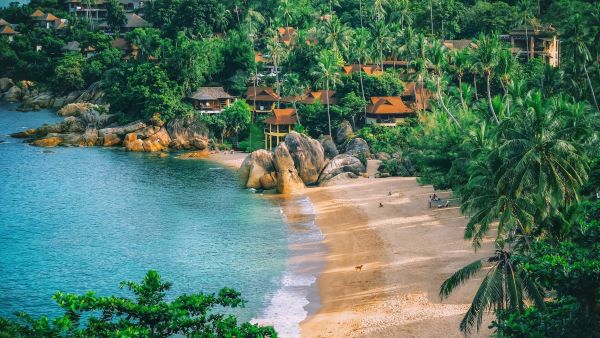Thailand Travel Tips
Thailand is one of the most attractive tourist attractions in Southeast Asia. The Thai government has many incentives to increase the number of international tourists to this country. With modern transport infrastructure, beautiful landscapes and excellent hospitality services, this country has developed tourism to be one of the key sectors in Thai economy. From elephant trek, unspoiled islands, elegant Buddhist temples to outrageous nightlife, tasty local foods and fabulous resorts, Thailand will never disappoint you! Traveling to Thailand, you will have a chance to meet friendly and light-hearted local people who make this country a ‘Land of Smiles’.
1. Visa and passport
It is required that your passport must be valid for 6 months from the date of entry to Thailand and you must have at least one blank visa page.
Thailand’s visa exemption rule allows nationalities from 55 countries to visit Thailand without a visa. Generally, nationalities from US, UK, Australia, Canada and most of the countries in Europe are eligible for 30-day visa-free when you enter this country by air and 15 days if you enter through a land border in Cambodia, Laos, Malaysia, and Myanmar. Check here to see if you are eligible for this policy.
It is required that tourist visa holders must have at least THB 10,000 per person in cash to enter this country.
2. Money

Thai Baht
Baht is the official currency in Thailand. It is not usually possible to spend other currencies such as US dollars, British Pound Sterlings or Canadian Dollars in this country. We recommend that firstly, you should exchange your home currency into US Dollar since exchange rate for US Dollars is much better. Then, you can exchange your US Dollar into Bath when entering Thailand. You will get a higher rate than exchanging your home currency into Baht, regardless of which country.
It is not necessary to exchange currency into Baht in your home country since Thailand’s local banks offer a very favorable exchange rate. You can exchange your cash at the airport or at some local banks in big cities.
ATMs are plentiful in this country, even in smaller provinces. But if you go to some off-the-beaten-track places, prepare some spare cash.
Though debit/credit cards are accepted in some restaurants, hotels and shopping malls, Thailand is still a cash-based country. Prepare some Bahts if you go to the market or buy some souvenirs.
3. Power Sockets, Phones & Internet
Internet is accessible in some tourist areas and wifi is relatively good in hotels, restaurants and café.
If you travel to some islands, it is necessary to purchase a data package. Three famous network providers in Thailand are AIS, DTAC and True. Don’t need to go anywhere far; there are many SIM Card stores at the airport.
In Thailand, people use 220V, 50 Hz and 2-pin round or flat electricity sockets. You can bring your own adaptor or your hotel will provide multi-socket power strips.
4. Getting around Thailand

Tuk tuks in Bangkok
Traffic is chaotic in Bangkok during rush hour; but thanks to rapid transit systems such as MRT and BTS (Bangkok Skytrain), it is fast and convenient to travel around this city. Tuk tuk is also an authentic transportation to discover the city. Motorbike taxis may not safe, hence, we do not recommend.
Buses and trains are main transportation to travel between provinces. Railway system is well-established in Thailand and you can even travel to Malaysia and Laos from this country by train. Renting a car in Thailand will offer more flexibility for you, especially when traveling to some off-the-beaten-track routes.
5. Healthcare & Safety
- Basically, Thailand is a relatively safe place to travel. Just be careful of scamming and pickpocketing in some crowded tourist destinations.
- Choose street foods wisely, only select vendors that seem to be clean and crowded with customers.
- It is dangerous to drive a motorbike in Thailand; the most common accident in Thailand is motorbike-related. There are many other convenient ways to get around the country.
6. Weather in Thailand
Though the weather varies throughout a year, Thailand is suitable for you to visit year-round. Located in a tropical monsoon zone, the weather in Thailand is characterized as hot and humid. The best time, also the high season in this country, ranges from November to the end of February when it is cool and pleasantly dry.
The rainy season runs from July to October, but don’t worry if you had booked a ticket to Thailand that time. There are still Thai massage, street foods and exciting nightlife for you.
Between March and June is the hot season here while April and May are the hottest months.
7. Cultural Etiquette

Wat Phra Kaew Temple, Thailand
When traveling to any foreign country, it is important to respect cultural differences, especially in a Buddhist country like Thailand. There are some rules when entering any religious site:
- You should cover up your shoulders, elbows and knees when entering any wat and temple.
- Don’t wear anything that is see-through or sleeveless. There are a lot of beautiful sarongs you can buy at the market, wear them to a pagoda. You will not be allowed to visit religious sites when you dress improperly.
- Remove your hats and leave your shoes at the entrance of pagodas. There will be a guideline where you can place your shoes on every religious site.
- Show utmost respect when entering a temple; don’t touch the monks.
- Don’t point at any Buddha.
- Lower your voice and avoid any inappropriate conversation. Be careful if you can take any picture inside a pagoda.
The king is highly respected in Thailand; thus, there is a rule that prohibits people, both local and foreign, from criticizing him. Don’t discuss anything related to government nor politics in this country.
8. Language
As Thailand is a famous tourist destination in Southeast Asia, most people in hospitality services here can speak English at a decent level. In some rural areas, some people don’t speak English, so prepare some translation apps for your phone.
9. Public holidays in Thailand
There are plenty of festivals in Thailand and two of them are celebrated nationwide: Songkran and Loy Krathong. Songkran is the most anticipated festival in this country. It is the traditional Thai New Year when people come home to share the festive moment with their families. Water splash is the main activity in this festival in which the locals believe to bring luck to each other
Top events in Thailand
- Makha Bucha: full moon of the third lunar month (February or March)
- Songkran: traditional Thai New Year, occurs in April (officially 13-15 April, but the date can be varied in some locations)
- Coronation Day:5 May
- Loy Krathong: first full moon day of the twelfth lunar month, usually in November.
- King’s Birthday (Father’s Day):28 July
10. Itineraries and Where to go

Phuket, South Thailand
Thailand is a place which is full of excitement and beautiful landscape for you to discover. 4 or 5 days are enough for a classic Bangkok – Pattaya tour but if you want to go farther, we recommend 6 to 7 days. Here are some popular tourist attractions in this country:
- Bangkok: This city is suitable for all kinds of travel – whether you are planning a family trip, a luxury holiday or a budget-friendly backpacking vacation. Bangkok is famous for its eye-widening Grand Palace and the spectacular Wat Phra Kaew Temple, one of three national treasures in Thailand.
- Chiang Mai: If you want to see an authentic Thailand and Thai unique culture, as well as not spending too much time on a beach, Chiang Mai is your place.
- Pattaya: This place is a heaven that foreigners seek for outrageous nightlife. Because of its convenient distance from the capital city, Pattaya has become a perfect weekend getaway for the locals.
- Phuket: It is the biggest island and one of the most sought-after attractions in this country. Unspoiled tropical forests and sandy white beaches are the reason to visit this paradise island.
Checklist before your trip
- ID card, visa, passport and copies of those documents
- Travel insurance
- Vaccination
- Credit/debit card and some US dollars
- Flight tickets/ Boarding pass
- A high-quality pair of shoes
- Bug repellent
- Lightweight clothing
- Medicines and first-aid kit
- Adaptor – 220V, 50Hz; 2 pin plugs
Short Tours to Thailand
Interesting Tours to Thailand

